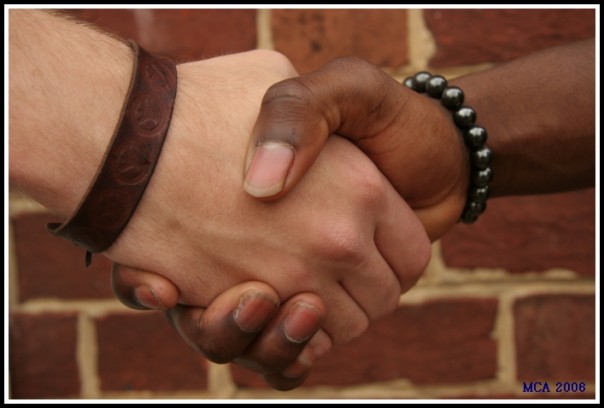 Guest Contributor Matthew Johnson comments on the Trayvon Martin case and offers an alternative view on how justice could have been served more widely.
Guest Contributor Matthew Johnson comments on the Trayvon Martin case and offers an alternative view on how justice could have been served more widely.
I work with middle school children of color at a summer camp as a conflict resolution specialist, and this past week, juxtaposed against the usual gossip of adolescence, was much talk of the acquittal of George Zimmerman, the self-appointed neighborhood watchman who murdered the unarmed 17-year-old Trayvon Martin in Sanford, Florida.
There were hints at potential reprisal, sadness, anger, and even provocation, with one stubborn attention-seeker disingenuously insisting that Zimmerman was innocent in front of a stunned audience of her peers. What was impressive was that by and large they understood more than the jury did — that you cannot follow an unarmed teen against police advice, kill him, and then call it self-defense. They also understood that if Martin had looked like me (a white man) — hoodie or not — he would almost certainly still be alive. He, in all likelihood, would have never been considered suspicious by the likes of Zimmerman at all. To say this had nothing to do with race is to be in denial.
I am not going to discuss the details of the case. I intentionally did not pay much attention because to focus on flaws in the prosecution, the so-called ‘Stand Your Ground Laws‘ (which had a much larger bearing on the case than is commonly recognized due to jury instructions that favored Zimmerman’s defense), and the racial makeup of the jury misses the larger point: The system was set up to fail. And it was set up to fail not only in this case but in every case because the retributive system of justice — which comprises courts, lawyers, judges, police, facts, guilt, innocence, and punishment — is not concerned with social justice or racial justice. It overlooks context, history, and power dynamics. It does not care whether Trayvon Martin’s family finds resolution, and by deciding to let Zimmerman prowl the streets once again with a firearm, it has also shown that it does not care about public safety either.
I entitled this piece “Trayvon Martyr” because in my view Martin is a martyr to the cause of criminal justice reform — albeit unintentionally. Of course, his is not the right time for me to plug restorative justice or some other response as a panacea given the gravity of Zimmerman’s acquittal — I do not believe it is a panacea — but an alternative. It may or may not have been the desired response of the Martin family, but nonetheless it should have been presented as an option for them to pursue and to receive support in that pursuit. Moreover, restorative justice should have been presented as an option to Zimmerman, who instead was compelled under the dictates of self-interest to avoid responsibility by hiding behind his lawyers and supporters as well as by (more than likely) bending the truth, if not outright lying, in his public statements. What if Zimmerman had the option to take responsibility without facing punitive consequences? This is the one important question missing from Charles Blow’s insightful July 15 op-ed in the The New York Times, immaculately entitled, “The Whole System Failed Trayvon Martin.”
The clear corollary is that the system not only failed Trayvon Martin: it failed George Zimmerman, who, even if he beats further legal action, will spend the rest of his life looking over his shoulder (perhaps, in an ironic twist, wearing a hoodie to hide his face) as a result. The system also failed society by stoking fear and animosity between blacks and whites. Its failure crushed whatever hope some of us still had in American justice. What is the solution? I offered restorative justice as an option that was not explored in this case and is not usually taken seriously by mainstream commentators, especially in the context of serious crimes. I offer it, even though I share a lot of the same feelings of anger toward Zimmerman as my students, because it has the potential to do so much more than send Zimmerman to the same warehouse of human misery that confines so many people of color for minor crimes or no crimes at all — the best-case scenario under the current system for Martin supporters. It has the potential, as Lisa Rea of Restorative Justice International alludes, to allow for healing on the individual as well as the societal level, secure the community through means other than by use of arms, and even transform the offender. None of this is a guarantee, but there is more potential in one honest dialogue between blacks and whites in the United States, whether or not they have ever been involved in inter-communal violence, then in the entire criminal justice system as it stands today. My hope is that by facilitating the death of Martin through its laws and acquitting his killer through its courts, the system has created a martyr whose spirit will haunt it until its own judgment day arrives.

